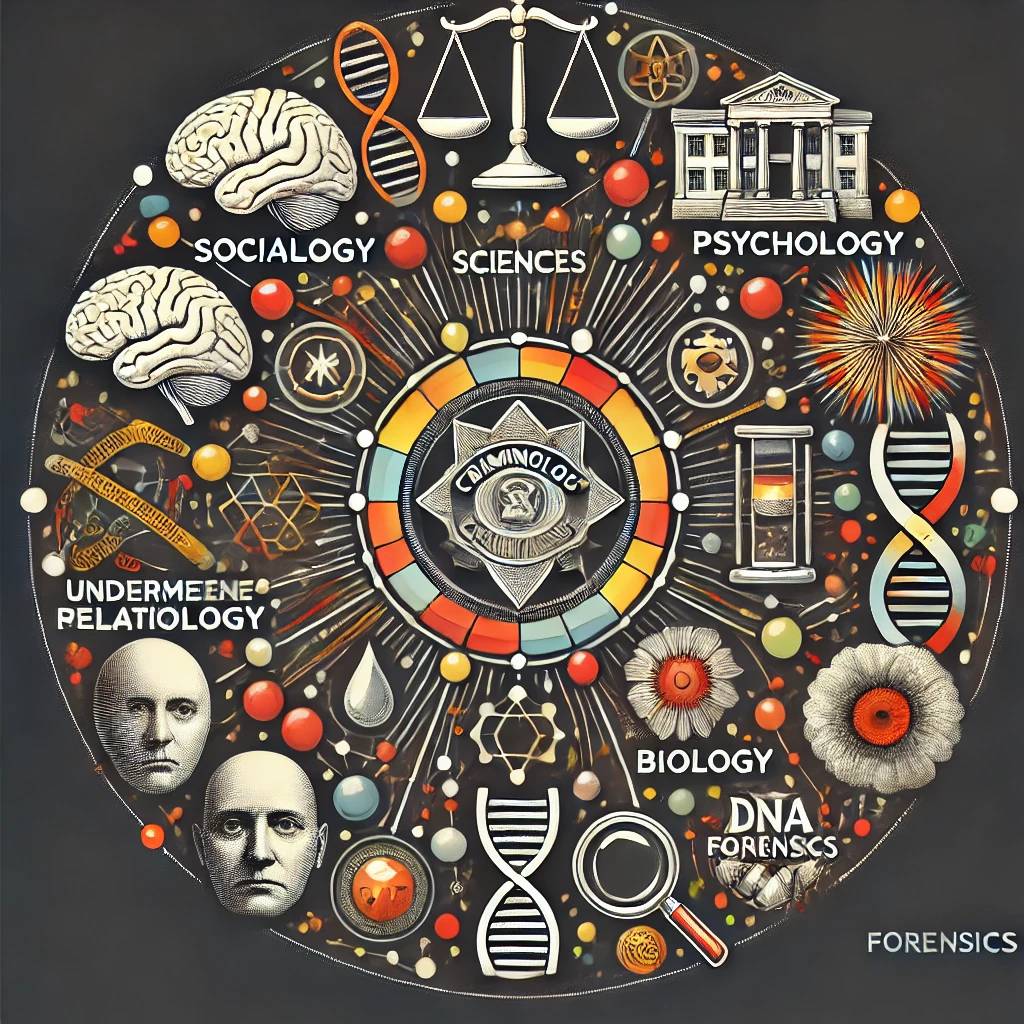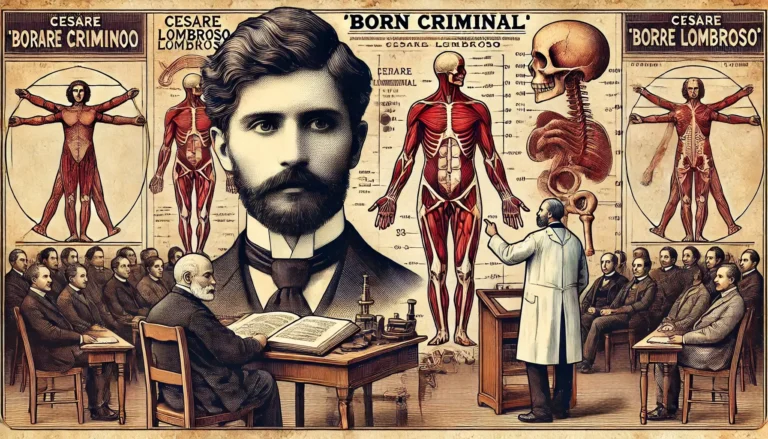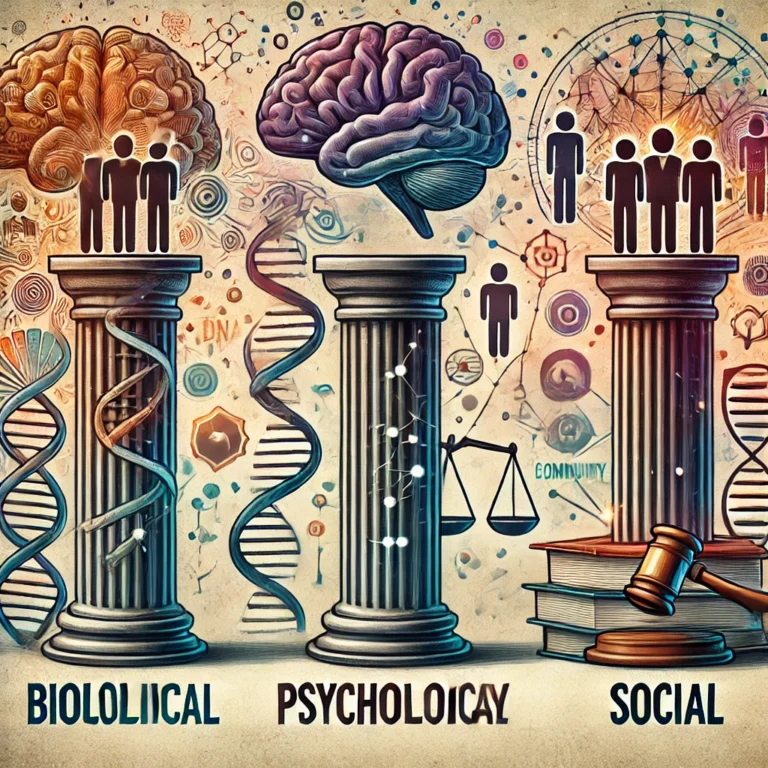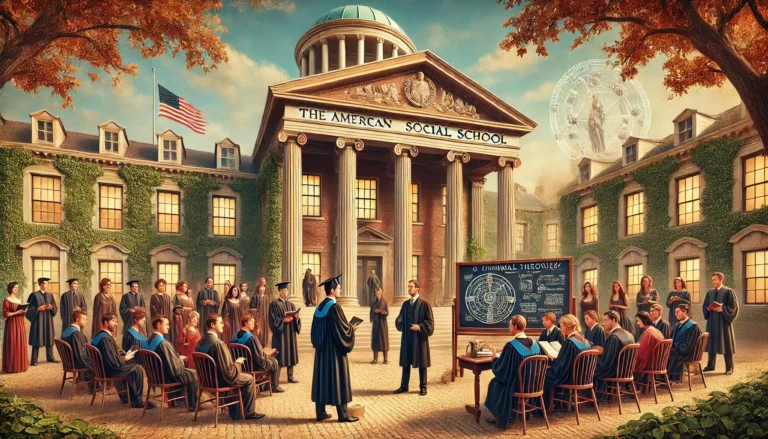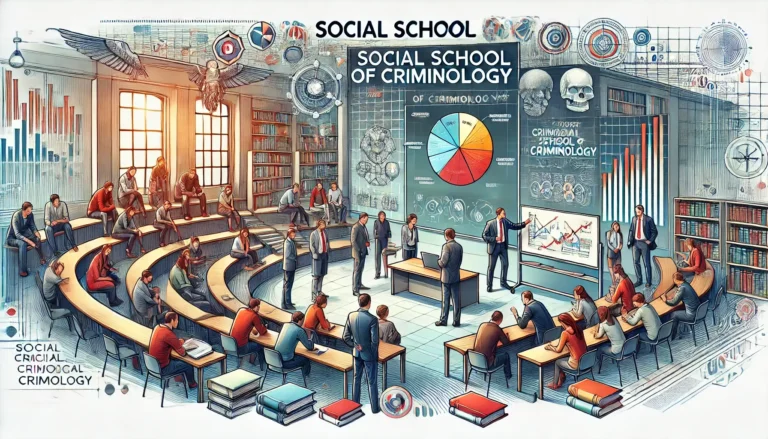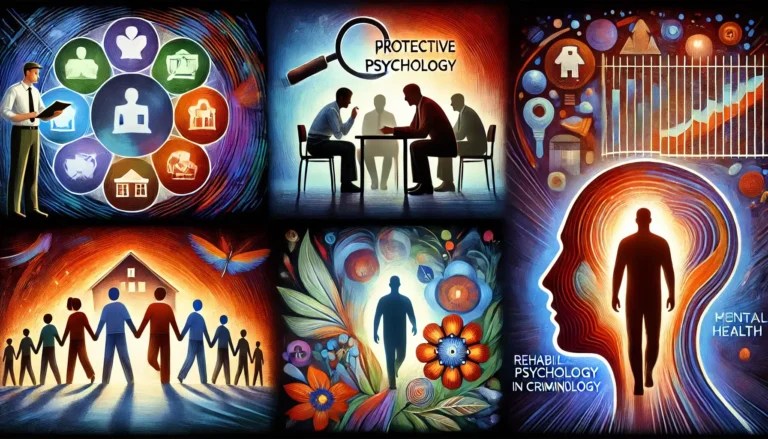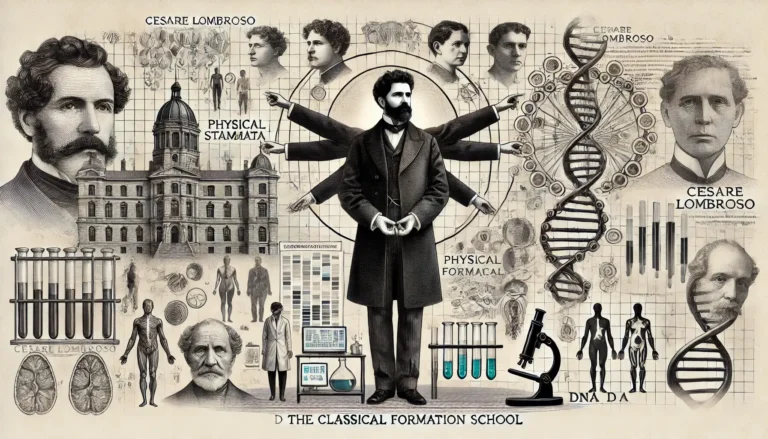Classical and Modern Theories in Criminology: A Comprehensive Analysis
explain the causes of crime and criminal behavior. From the classical theories of the 18th and 19th centuries to the more recent modern theories that incorporate psychological, sociological, and environmental factors, criminology has become a complex interdisciplinary field. This article presents a comprehensive analysis of both classical and modern criminological theories, highlighting their key principles, contributions, and impact on the development of criminal justice policies.
Classical Theories of Criminology: The Birth of Rational Choice
The classical school of criminology, which emerged during the Enlightenment period in Europe, focused on the idea that crime is the result of rational decisions made by individuals who weigh the costs and benefits of their actions. Classical criminologists believed that people have free will and that punishment should be proportionate to the crime committed in order to deter future offenses. Key figures in classical criminology include Cesare Beccaria and Jeremy Bentham.
Cesare Beccaria and the Social Contract
Cesare Beccaria (1738–1794), an Italian philosopher and criminologist, is considered one of the founding figures of the classical school. In his groundbreaking work On Crimes and Punishments (1764), Beccaria argued that laws should be designed to deter crime, and punishments should be swift, certain, and proportionate to the offense. He rejected torture and the death penalty, advocating for fair and humane treatment of criminals.
Beccaria’s work was instrumental in promoting the idea of a criminal justice system based on rational principles. He believed that if the punishment for a crime was predictable and proportionate, individuals would be less likely to commit offenses, as the fear of punishment would outweigh the desire to break the law.
Jeremy Bentham and Utilitarianism
Jeremy Bentham (1748–1832), a British philosopher and social reformer, is best known for developing the philosophy of utilitarianism, which holds that the moral worth of an action is determined by its outcome. Bentham argued that the goal of punishment should be to maximize the overall happiness of society by preventing crime and reforming offenders.
Bentham introduced the concept of the “Panopticon,” a design for a prison where inmates could be observed at all times, symbolizing his belief in constant surveillance as a means of deterrence. His ideas on utilitarianism greatly influenced the development of criminal justice policies, particularly in the areas of punishment and rehabilitation.
Key Concepts in Classical Criminology
- Free Will and Rational Choice: Classical criminology emphasizes the idea that individuals have free will and make rational decisions when committing crimes.
- Deterrence Theory: The central principle of classical criminology is deterrence, which argues that the threat of punishment can prevent crime by making the consequences of illegal behavior undesirable.
- Proportionality of Punishment: Classical criminologists advocated for punishments that are proportional to the severity of the crime, rejecting excessive or arbitrary punishment.
Impact and Criticism of Classical Criminology
The classical school had a lasting impact on the development of modern criminal justice systems, particularly in promoting the principles of due process, equality before the law, and the abolition of cruel and unusual punishments. However, it has been criticized for failing to account for the social, psychological, and environmental factors that influence criminal behavior, as it relies solely on the idea of rational choice and free will.
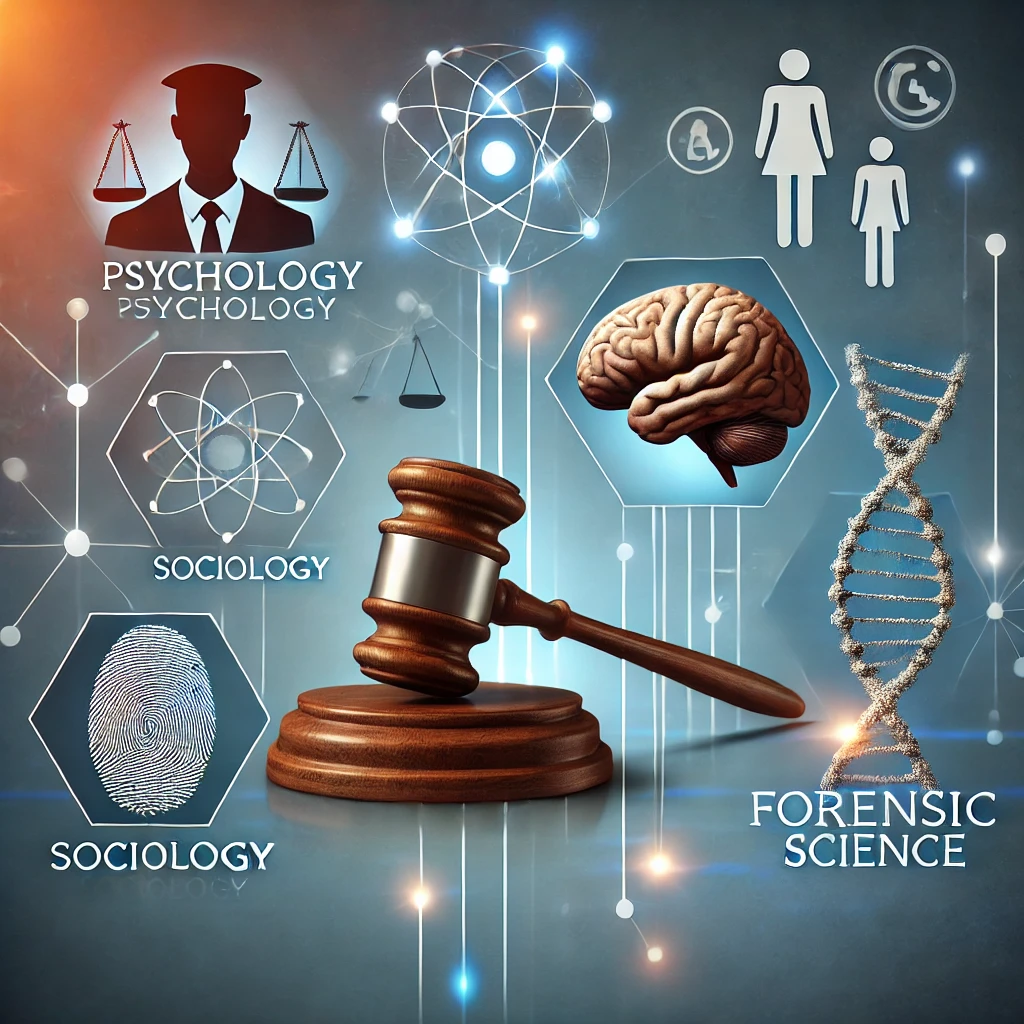
Modern Theories of Criminology: A Multifaceted Approach
While classical criminology laid the groundwork for the study of crime, modern criminological theories have sought to explain criminal behavior through a more comprehensive and nuanced lens. These theories incorporate a variety of factors, including social environment, psychological development, and biological influences, to provide a more complete understanding of why people commit crimes.
The Sociological Perspective: Social Structure and Strain Theory
Sociological theories of crime focus on the role of social structures, institutions, and inequality in shaping criminal behavior. One of the most influential sociological theories is strain theory, developed by Robert K. Merton in the 1930s. Merton argued that crime is often a result of the tension between societal goals and the means available to achieve those goals. When individuals are unable to achieve success through legitimate means, they may resort to criminal behavior to achieve their goals.
Strain theory highlights the impact of social inequality, poverty, and limited opportunities on criminal behavior. It suggests that crime is more likely to occur in societies where there is a significant gap between the goals set by society (such as wealth and success) and the means available to achieve them (such as education and employment opportunities).
Social Learning Theory: The Role of Environment and Peer Influence
Social learning theory, developed by Edwin H. Sutherland and later expanded by Ronald Akers, emphasizes the role of social interactions and environment in the development of criminal behavior. According to this theory, individuals learn criminal behavior through their interactions with others, particularly through the process of imitation, reinforcement, and modeling.
Social learning theory suggests that people are more likely to engage in criminal behavior if they are exposed to environments where criminal actions are normalized or rewarded. This theory highlights the importance of peer influence and social networks in shaping an individual’s behavior, as well as the role of family, community, and societal norms in promoting or preventing crime.
Psychological Theories: The Role of Personality and Mental Disorders
Psychological theories of crime focus on individual characteristics, such as personality traits, mental disorders, and cognitive processes, that may predispose individuals to criminal behavior. Sigmund Freud and other early psychologists suggested that unconscious conflicts, repressed desires, and unresolved trauma could contribute to criminal behavior.
Later psychological theories, such as Eysenck’s Theory of Personality, proposed that individuals with certain personality traits, such as impulsivity and lack of empathy, may be more prone to criminal behavior. Additionally, modern psychological research has examined the role of mental disorders, such as antisocial personality disorder and psychopathy, in criminal behavior.
Biological Theories: Genetics and Brain Function
Biological theories of crime suggest that genetic, neurological, and hormonal factors may play a significant role in predisposing individuals to criminal behavior. Studies have shown that abnormalities in brain structure, neurotransmitter imbalances, and genetic predispositions can influence an individual’s likelihood of engaging in criminal behavior.
The nature vs. nurture debate is central to biological criminology, with some researchers arguing that genetic factors may predispose individuals to certain behaviors, while others emphasize the role of environmental influences in shaping criminal tendencies. Modern research in neurocriminology seeks to explore the complex interaction between genetics and environment in understanding criminal behavior.
Integrative and Contemporary Approaches: A Holistic View of Crime
In contemporary criminology, there has been a growing recognition that no single theory can fully explain crime. As a result, modern criminologists often adopt integrative or multifactorial approaches that combine elements from various theoretical perspectives.
Life Course Theory
Life course theory examines how an individual’s experiences and choices over the course of their life can influence their likelihood of engaging in criminal behavior. It looks at factors such as childhood experiences, family dynamics, education, employment, and social relationships, highlighting how these factors interact and shape an individual’s trajectory.
Critical Criminology and Social Justice
Critical criminology challenges traditional approaches by questioning the role of power, inequality, and social justice in the creation and enforcement of laws. Critical criminologists argue that the criminal justice system often serves the interests of the powerful, marginalizing certain groups and perpetuating social inequalities. They advocate for reforms that address the root causes of crime, such as poverty, discrimination, and economic exploitation.
Conclusion
The field of criminology has evolved from classical theories that emphasized rational choice and deterrence to modern, multifaceted theories that incorporate a range of biological, psychological, and social factors. Classical criminology laid the groundwork for the criminal justice system, while modern theories have provided a deeper understanding of the complex causes of crime. Today, criminologists continue to draw on both classical and modern theories to inform criminal justice policies and interventions, striving for a more just and effective approach to crime prevention and rehabilitation.

